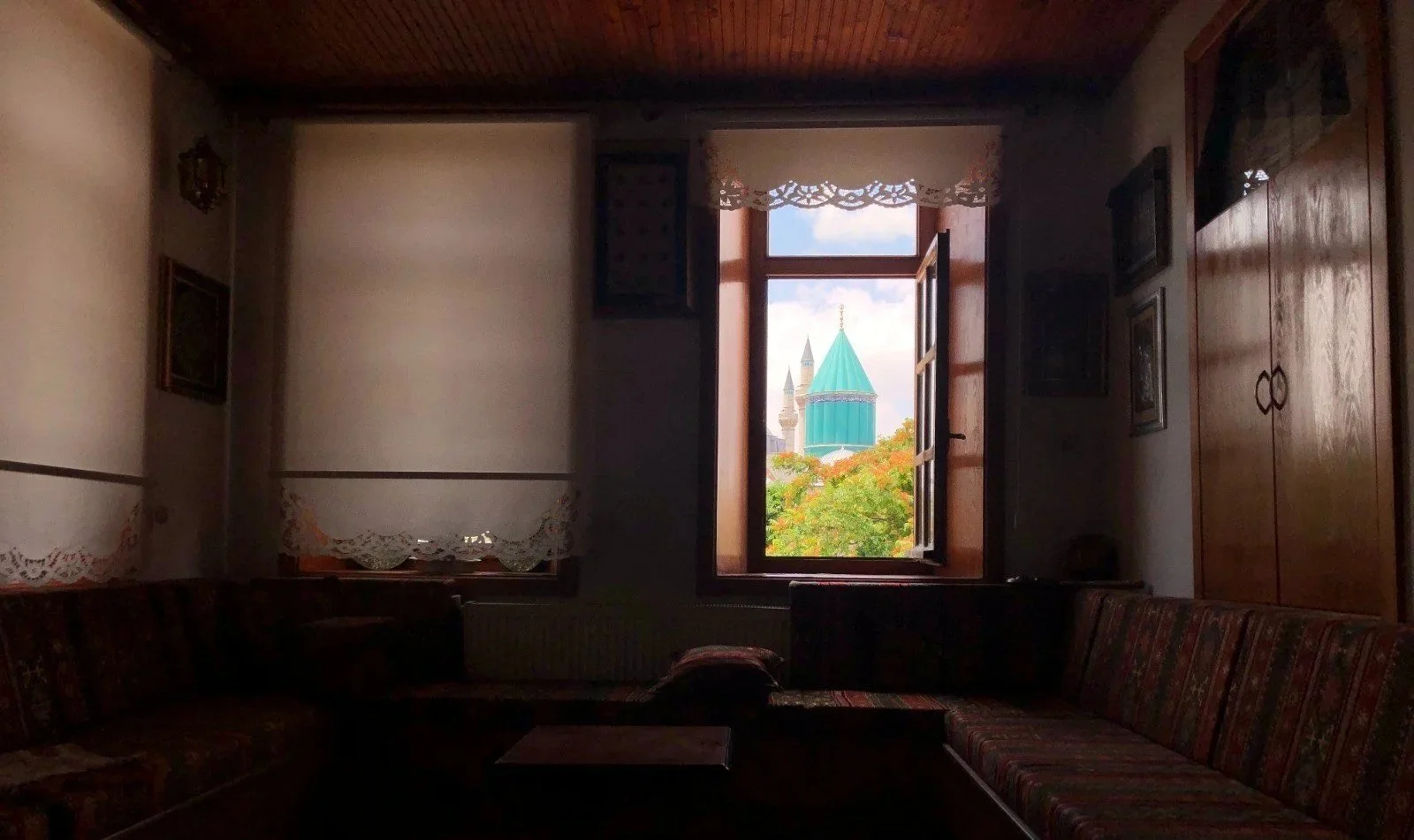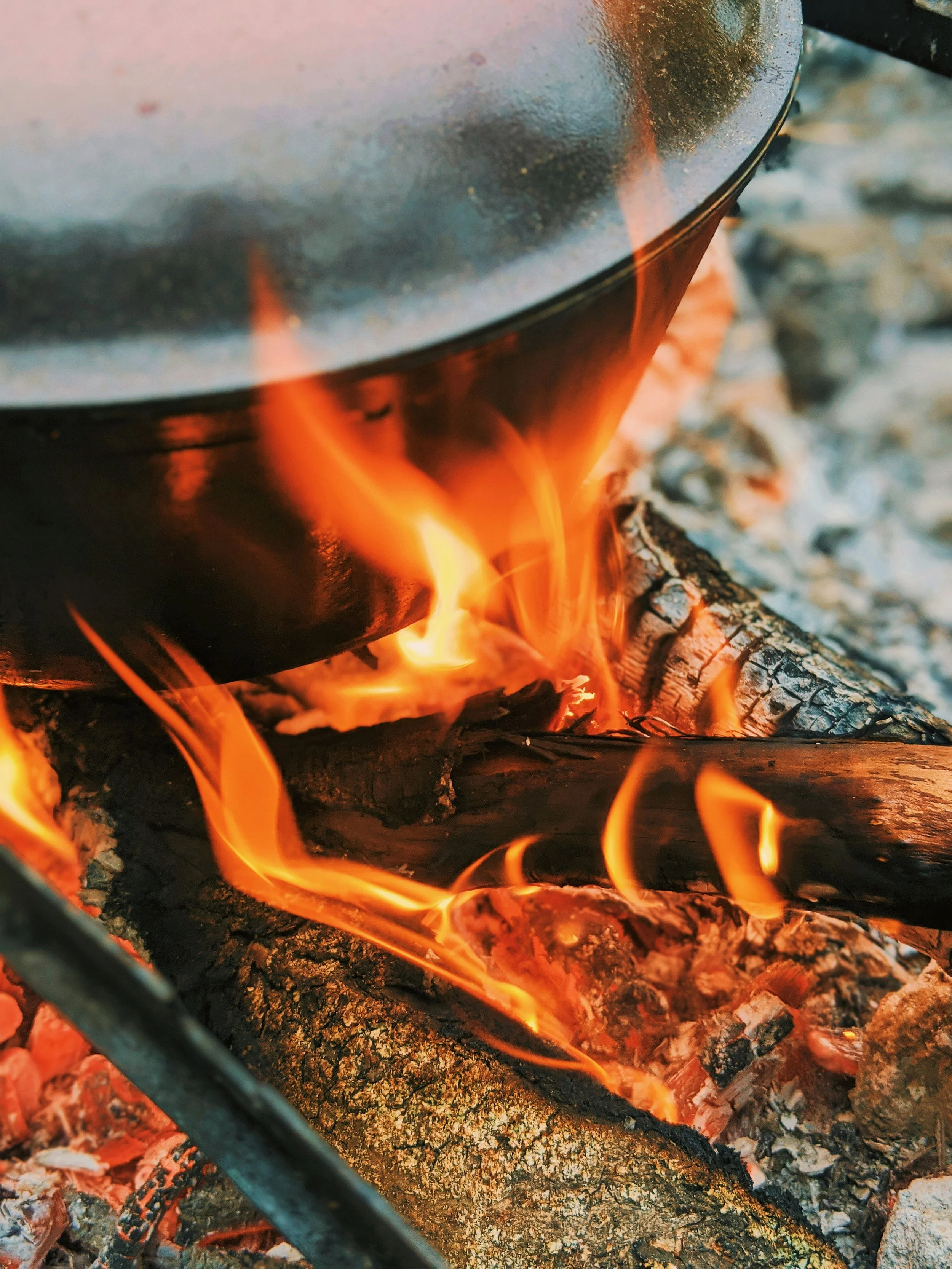
Entering the Dergah
What is the Asîtâne?
In the old Mevlevi dergâhs the kitchen was not referred to as just a kitchen.
It was called the asîtâne, which literally means: the threshold of cooking.
It was the place where not only food was cooked, but also the inner landscape of the person stepping past the threshold.
Every dervish who entered the path began in the asîtâne. Not to perform, but to be transformed: through humble tasks, through service, through learning to listen, in silence.
Hz. Mevlânâ Rûmî says:
“The human being is raw. First he cooks, then he burns, then he becomes fragrance.”
The asîtâne is therefore not theory, but a place of practice, patience, and surrender.
It is the gate through which every traveler must pass. Here one learns that spiritual growth is not about cutting and pasting, but about cooking: ripening into fragrance through silence, practice, and love.
Whoever allows themselves to be cooked, discovers the taste of the path of Hz. Mevlânâ Rûmî.
Becoming a murîd
Within the asîtâne, one becomes a murîd, literally, a “willing one.”
In our tradition, a murîd is not an outward follower but an inward seeker, someone longing to discover their inner truth through wisdom, adab, and the refinement of heart and soul. The murîd’s trust, commitment, and effort are essential for true progress. Without this inner willingness, no real growth is possible.
When you cross the threshold of the asîtâne, you become a student of life. But before one formally becomes a murîd, there is a period of exploration and ripening.
In the Mevlevi tradition this is called the Nev-Niyâz: a time of about a year in which you taste, explore, and most of all, listen to your heart. Not everything is certain at first. There may be resistance or doubt whether this is your path. This is not wrong, it is part of the discovery.
What matters is whether this path resonates with your inner landscape.
The first step
In our dergâh in Amsterdam, we follow the same approach. The path asks you to face and let go of the indifference of your ego (nafs). Not to lose yourself, but to uncover the beauty within your heart.
This is not rushed work. It requires step by step seeing, listening, and opening to what is truly good for you.
The way in Amsterdam
The cooking of the heart
Hz. Mevlânâ Rûmî writes in the Masnavî about the cooking of the heart. He sees the human being who takes a step over the threshold of the asîtâne as a raw chickpea allowing itself to be cooked.
“Look at a chickpea in the pot, how it leaps up when it is subjected to the fire.
At the time of its being boiled, the chickpea comes up continually to the top of the pot and raises a hundred cries, Saying, “Why are you setting the fire on me? Since you bought (and approved) me, how are you turning me upside down?”
— Masnavî III: 4159–4160
Becoming a murîd is not about receiving a label, but about beginning a journey. It is allowing the cooking of the heart. For growth does not come through haste, but by remaining faithful to the process.
Whoever takes this step enters a garden of love, where sohbet, semâ, zikir, and hizmet form the soil in which the soul can take root.
And as Hz. Mevlânâ Rûmî reminds us:
“Until you are cooked, you cannot leave this gate.”
The chickpea feels the heat and wants to jump out. But the cooking continues, slowly, gently, with patience. Only through this process does the chickpea become edible, nourishing, and fragrant.
So it is with the murîd. At first there is resistance, even the desire to flee. But whoever stays, allowing themselves to be cooked in the heat of practice, grows soft, ripe, and full of the fragrance of love.
Spiritual growth is cooking
What you do not expect when you long for illumination, is that at first it becomes darker. That you do not immediately rise upward, but rather descend, not into ruin, but into the depths of your being.
This process is not new. For centuries, the Mevlevis have known and safeguarded it.
Just like in inner awakening:
Your heart must be soaked, so that it becomes open and receptive,
it must simmer in self-knowledge, and
give off fragrance through service.
Those who refuse to cook remain hard. Those who avoid the fire remain unripe.
The spiritual path is therefore not a fairy tale, but a kitchen. And this website is like a recipe book: not for food, but for inner ripening.
Want to know more about the Asîtâne?
Please feel welcome to share with us any questions or thoughts you may have about stepping into the asîtâne, the heart of the Dergah in Amsterdam.
You may have questions such as:
What would it be like for me to take this path, to take a first step toward exploring the thresholds I am facing in my life right now?
What am I genuinely seeking for?
Is this the right moment for me?
Contact Us
Send us a message. We look forward to hearing from you.

